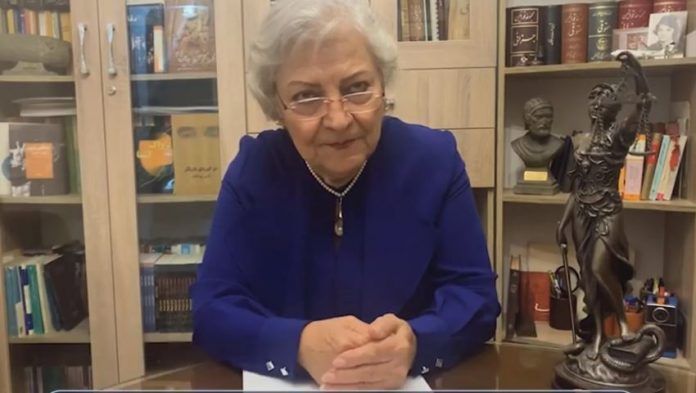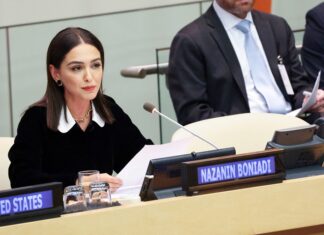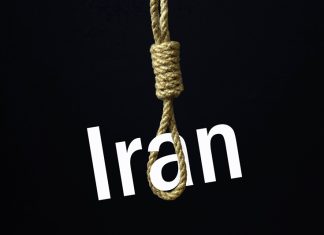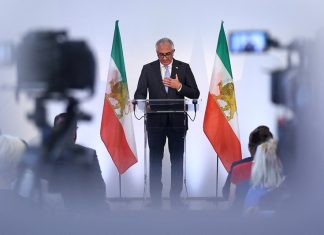By Kayhan Life Staff
The Iranian authorities have granted Giti Pourfazel, a judicial lawyer and civil rights activist, conditional release, her attorney Mohammad Hossein Aghassi, said in a tweet.
“Good news for Ms. Giti Pourfazel’s friends. The court has approved the conditional release of my colleague and client, Ms. Pourfazel,” Mr. Aghassi tweeted on Sept. 15.
“The court has ordered that for the rest of her sentence ‘she must not associate with people who hold corrupt and subversive ideas and pose a security threat,’” Aghassi added.
Authorities had transferred Ms. Pourfazel to Tehran’s Evin Prison to serve a 27-month prison sentence. She was granted a medical furlough on July 24 of this year after contracting the coronavirus but had to return to prison last week.
Before returning to prison, Pourfazel sent a message to an online seminar titled “Beyond Geopolitics: The State of Women’s Rights in Iran,” hosted by the Washington-based Georgetown Institute for Women, Peace, and Security (GIWPS) on Sept. 1.
“As a Muslim woman back in 1979, I knew women would lose many of their rights in an Islamic state. They might even be marginalized and have to remain at home. And that happened, precisely,” Pourfazel said in the message.
Giti Pourfazel was one of 14 women activists to sign an open letter in 2019 calling for peaceful regime change in Iran and urging Iran’s Supreme Leader Ayatollah Ali Khamenei to resign. Following publication of the letter, Pourfazel and other signatories were arrested on Aug. 19, 2019.
After a month of investigation, she was transferred to Evin Prison. Pourfazel was granted temporary release on Nov. 13 of the same year on payment of $119,000 bail.
She was subsequently tried at Branch 26 of Tehran Revolutionary Court. The presiding Judge Iman Afshari sentenced Pourfazel to a total of four years and two months in prison. The judge handed Pourfazel a 42-month sentence for “unlawful assembly” and “collusion to undermine national security.” She was also given an eight-month prison sentence for “sedition.” The court further banned her from being a member of any political group or faction for two years.
In her message to this month’s Georgetown online seminar, Pourfazel offered several crucial measures that women in Iran could take to improve their conditions.
“I believe the only way to change the current conditions under which women live would be through increasing the number of women’s groups. Some women’s groups, including Mothers for Peace, have made good progress by staging protests,” Pourfazel argued. “We must also revive some existing organizations, including the Association of Women Lawyers, founded by the late Mehrangiz Manuchehrian. The association was a member of the International Federation of Women Lawyers. It allowed us to discuss legal issues and our concerns about Iranian women’s rights at an international forum.”
“Ms. Manuchehrian was invited to speak about issues concerning Iranian women at the United Nations frequently. Her speeches and writings drew attention to women’s rights and paved the way for Iranian women to demand their fundamental rights. People must demand and fight for their rights because no one hands them to us,” Pourfazel explained. “To maintain constant communication with the international community, we must form more groups and become members of various international entities and communities. We must contact Europe and the U.S. to give visibility to our plight, putting more pressure on Iran that may ultimately help us regain the rights that we have lost.”
“I believe we must carefully review all existing laws and reverse and overturn any that violates women’s fundamental human and civil rights,” Pourfazel noted. “I am hopeful about Iranian women’s future and hope women worldwide join Iranian women and speak up and fight against injustices and violations of women’s rights wherever they live.”
“To gain our rights, we must fight for them,” Pourfazel added.
Under Article 134 of the Islamic Republic Penal Code, a person convicted of multiple offenses will only serve the longest sentence. Pourfazel was sentenced to 42 months, but it was reduced to two years and three months, given that no objections were raised regarding the original ruling.
Pourfazel’s most recent arrest took place when she reported to the Evin Prison prosecutor’s office in September 2020. She was transferred to Evin prison shortly after.








